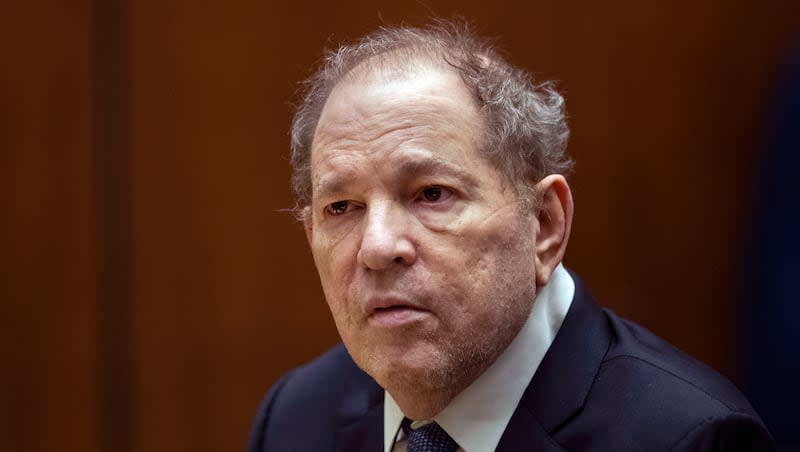Harvey Weinstein’s 2020 rape conviction was overturned

New York state’s highest court overturned Harvey Weinstein’s rape conviction Thursday and ordered a new trial.
Weinstein, 72, remains in prison because he was sentenced to 16 years in prison after he was found guilty of rape in a 2022 Los Angeles case. Before his conviction, Weinstein was a Hollywood producer and was at the center of allegations during the #MeToo movement.
The New York Court of Appeals’ 4-3 ruling centered on the court’s assertion that the court “erroneously admitted testimony of uncharged, alleged prior sexual acts.”
During Weinstein’s 2020 trial in New York, he was found guilty of criminal sexual assault in the first degree and rape in the third degree. He was sentenced to 23 years in prison.
Weinstein had appealed his conviction and a lower court upheld his conviction. Now that the New York Court of Appeals has overturned the conviction, he will face a new trial.
The majority opinion also said that by admitting this testimony into the public record, it made it more difficult for Weinstein to be cross-examined because he could be asked about allegations where no charges had been filed.
In turn, Judge Jenny Rivera, author of the majority opinion, wrote that this “undermined the fact-finding process in the case” and also “undermined the defendant’s right to testify.”
A dissenting opinion, penned by Judge Madeline Singas, stated that the court’s ruling “continues to thwart the steady gains survivors of sexual violence have fought for in our criminal justice system.”
“Forgotten are the women who bear the psychological trauma of sexual violence and the scars of testifying again, and again,” Singas wrote. “This erosion of precedent, born from a refusal to accept that crimes of sexual violence are far more nuanced and complex than other crimes, comes at the expense and safety of women.”
A spokesperson for the Manhattan district attorney’s office told The New York Times, “We will do everything in our power to retry this case and remain steadfast in our commitment to survivors of sexual assault.”
“Today’s decision is a major step back in holding those accountable for acts of sexual violence,” Douglas H. Wigdor, an attorney who represented eight of Weinstein’s accusers, told CNN in a statement. “Courts routinely admit evidence of other uncharged acts where they assist juries in understanding issues concerning the intent, modus operandi or scheme of the defendant.”
“The jury was instructed on the relevance of this testimony and overturning the verdict is tragic in that it will require the victims to endure yet another trial.”
Weinstein’s lawyer, Arthur Aidala, called the ruling “a tremendous victory” in a statement to The Associated Press.

